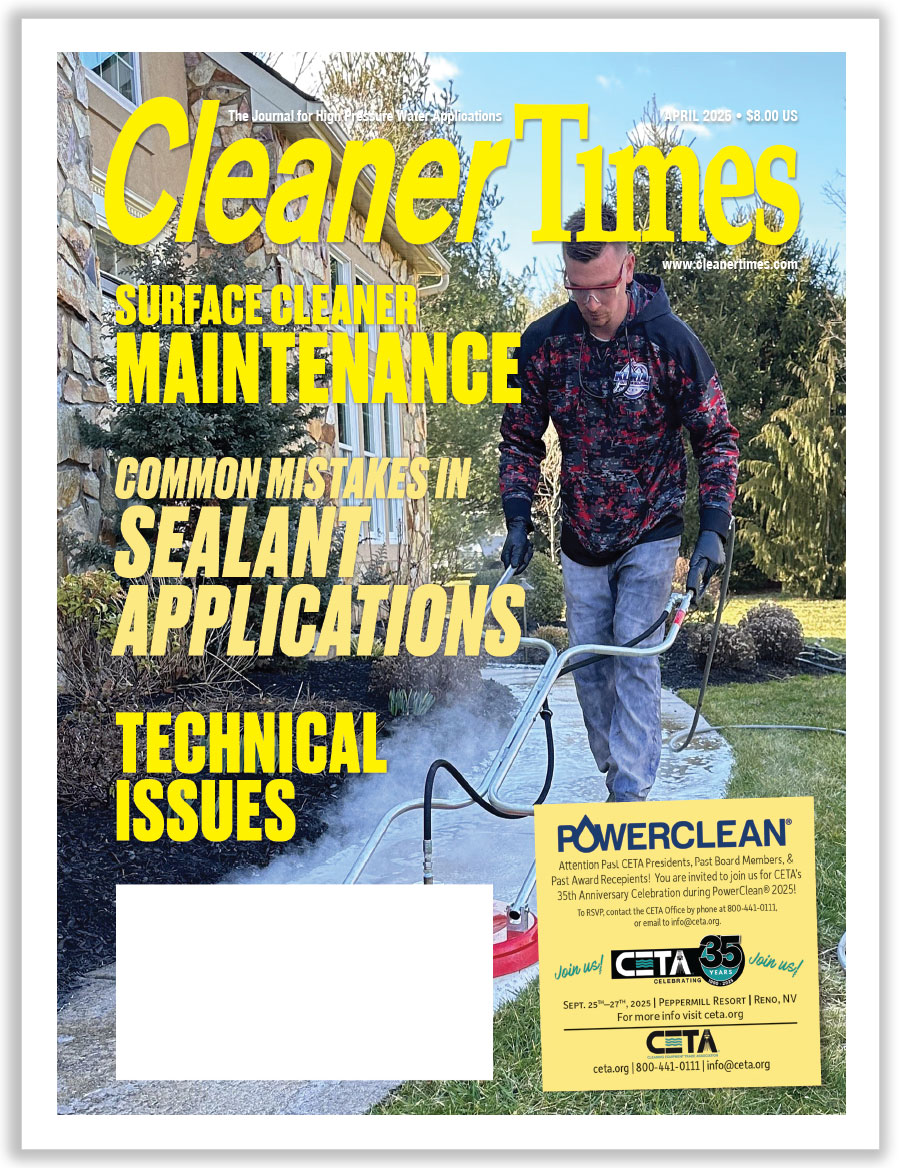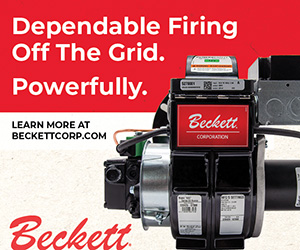
Cleaning Residential Areas
By Diane M. Calabrese / Published June 2021

Don’t let the dog out. Canine whereabouts are one of many concerns when cleaning residential areas. Passersby, children at play, and obstacles in the path of workers can occur on any type of jobsite, but their immediacy is more apparent in residential cleaning.
Homeowners can be possessive about their property, yard ornaments, and especially, their gardens. Many will have the good sense to move gnomes and birdbaths before contractors arrive, but some will not. Indeed, those owners with foresight will also have covered the plants they want to protect from spray, but hindsight often prevails.
Consequently, cleaning residential areas requires a disposition that allows for dealing with what is. Not what one would like things to be.
One of the most difficult aspects of residential cleaning is “property preservation,” says Jai Barlow, owner of ICU Power Washing in Spring, TX. “Particularly, flowers and vegetation up against the house is what keeps my nerves bad.”
Barlow’s company does a healthy mix of residential and commercial cleaning. “The main residential area we service has homeowners who spend a lot of money on their landscape and vegetation,” he explains.
Logistics can also be a challenge in residential cleaning, and Barlow gives us an example. “The main request always seems to be driveways,” says Barlow. “It’s not cost effective to move the truck for one or two driveways in different areas, so setting routes and lining up appointments is imperative.”
Coordination often gets complicated, says Barlow, “especially when clients insist they need to be there.” Even so, coordination is what carries the day. Barlow’s team emphasizes it. “It took a while, but we have finally gotten into a great routine of who does what when we pull up on site,” says Barlow. “We work well together…”
Protection of property, curb appeal, and safety (eliminate risk of do-it-yourself) are wrapped into the value of choosing a professional power washing company for residential cleaning. And they are all highlighted at Barlow’s website.
Cleaning houses and related structures (decks, driveways, patios—and windows and roofs, if qualified to work high) can be very good business. Professional contractors minimize the use of water and chemicals—i.e., follow best practices—and they get noticed.
Some homeowners turn to a professional after a DIY incident. Often, they started and did not finish the wash. Being able to step in and complete or redo a job without criticism can be a good way to generate business. Residential cleaners in some parts of the country would benefit by advertising willingness to complete a project gone awry.
We have all read news reports of homes selling at a brisk pace this year. In some areas, cash is paid, and inspections are waived.
In any region with even a bit of seller competition, however, a clean exterior is a must, and realtors will tell their clients so.
Mold, algae, insect parts, and dirt are things that would-be buyers notice when they approach a front door. The accumulation may be harmless to the structure of the house, but it causes a prospective buyer to wonder what other things a seller has neglected.
In 2018, the number of houses in the United States stood at 138 million, according to the American Community Survey. About one quarter of the homes were multifamily and six percent were manufactured. Again, for contractors that want to focus on residential cleaning, there is a huge pool of possible clients.
Knowing the perspective of clients in the market being served can help tailor outreach. Stressing the environmental friendliness of methods used when cleaning with a pressure washer is always a good idea, especially so in certain markets.
In some parts of the country, cleaning in residential areas requires a National Pollution Discharge Elimination System (NDPES) permit. Even within a state, a contractor may need a permit in one jurisdiction and not need one in an adjacent community.
Cleaning in residential areas requires the same acute attention to regulations as does cleaning in commercial areas. All EPA, OSHA, and state and local rules must be followed; and any licensing requirements must be met.
Contractors with a focus on residential areas should be open to possibilities that add to their repertoire. Added services are one way to increase the bottom line.
“Outside the home, there are not many cleaning tasks a pressure washer cannot address,” says Richard “Bo” Bodo, vice-president of sales at Square Scrub, headquartered in Jonesboro, AR. “However, inside a home, there are cleaning tasks that could create new revenue streams for professionals whom the homeowner is trusting to clean the exterior of their home.”
Bodo knows the pressure washer industry well from his past service in it. He encourages contractors to think broadly about how to expand services. His company offers tools such as the Pivot, which can be used with 24 or 36 grit sandpaper to remove gum from concrete—without damage to the
concrete—and do much more.
“While the natural inclination is to pressure wash a deck prior to staining, many cleaners know all too well the feeling of getting just a bit too close to the surface and leaving marks in softwood, such as pine,” says Bodo. “Our tool can be used to sand the deck…leaving a smooth surface that does not need to dry before the stain is applied.”
Tile and grout floors, as well as luxury vinyl floors, also benefit from tools offered by Bodo’s company. Compactness and cordless options among the tools reduce the space required to add them to a truck.
With so many homeowners adding ‘fifth rooms’ (unattached structures for office, greenhouse, playroom, etc.) to their yards, tile and grout floors are not only inside main residences. Vinyl plank floors are also being embraced.
The better a contractor knows the area where residential cleaning services are offered, the more closely he or she can match the services—and equipment—to the needs of homeowners. As Bodo notes, complementing pressure washers and ancillaries with a machine from a contiguous industry sector may add significantly to the revenue stream.
Whichever cleaning method a contractor uses, it will bring forward the curious. Delineating a work area with signage and tape may be just as important on some house projects as in commercial cleaning. Do what it takes to keep everyone a safe distance from equipment, spray, wet pavement, and so on.
The sheer number of people working from home as this decade begins will likely lead to even more questions from property owners. They will ask the usual, such as how the job will be done, how plants will be protected, and how long it will take to complete the wash. They may also ask about noise.
Experienced residential contractors can save time by providing a fact sheet along with the estimate to answer the most frequent questions. Many contractors provide estimates online based on photos and site descriptions offered by homeowners; the method can work if the contractor knows the community well.
Residential jobs are an advertisement in real time and the real world. Take advantage.
The more contained the worksite, the quieter and more methodical the approach, the likelier neighbors and passersby will be impressed. If the curious look at the truck that brought the team and it is clean and orderly inside (no junk on the dashboard or masks hanging from the rearview mirror), they will be doubly impressed.
The name of your company and the phone number should be on the side of the truck. It will be recorded by passersby who like what they see.






